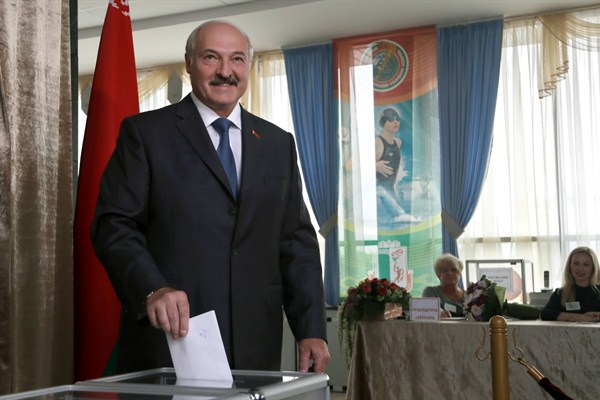In last month’s elections in Belarus, opposition members picked up seats in parliament for the first time since 1996. For most of its independence from the Soviet Union, Belarus has been under the firm control of Alexander Lukashenko, frequently described as Europe’s last dictator. Lukashenko claims no political party, and neither do most members of parliament, which functions as a rubber stamp for him. But the ascension of Anna Konopatskaya, of the United Civic Party, and Elena Anisim, a linguist with ties to opposition activists, sends a clear if symbolic message that Lukashenko is anxious, both about his own internal standing and about Belarus’ precarious geopolitical position.
For the past two years, Lukashenko has looked on nervously as Russia has chipped away at Ukraine’s territory following the overthrow of a Kremlin-friendly president in Kiev. Belarus is a close ally of Russia; its eastern border is a five-hour drive from Moscow; and Russian-speakers make up a much larger share of the population than they do in Ukraine. Lukashenko and Russian President Vladimir Putin have never had a good personal relationship, but as long as Belarus’ politics have remained stable, Russia has respected its neighbor’s sovereignty. Ukraine offers a cautionary tale of what happens when a post-Soviet state becomes politically polarized over its relations with Russia.
A year ago, on the eve of Lukashenko’s suspense-free re-election, Andrew Wilson wrote in World Politics Review that Lukashenko had shown “a surprising amount of solidarity with Ukraine’s new leaders” and had “resisted Moscow’s attempts to enlist him as a second front to pressure Ukraine,” instead hosting periodic cease-fire negotiations in Minsk. These negotiations may not have succeeded in their ostensible purpose, but they have allowed Belarus to carefully straddle the divide between Russia and the West and to keep its strategic options open.

